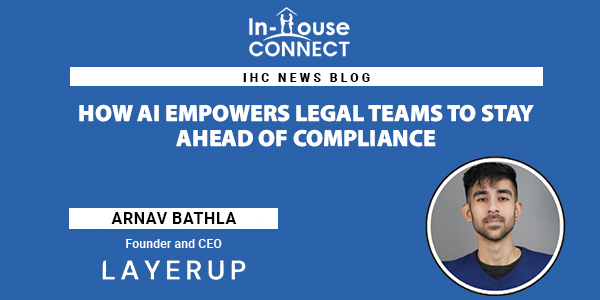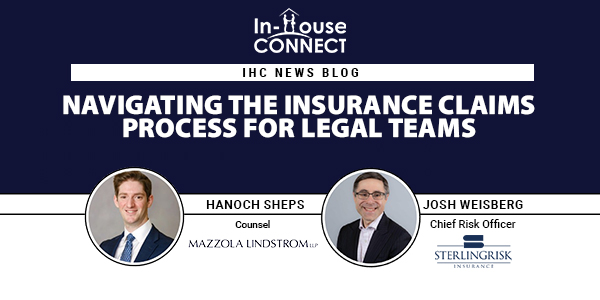In the recent In-House Connect webinar “AI Agents for Regulatory Compliance for In-House Counsel,” presented by Arnav Bathla and hosted by Shai Mehani, participants gained crucial insights into the transformative potential of AI in regulatory compliance. The session illuminated various aspects of AI integration, its benefits, and practical guidance on navigating AI applications in financial and legal sectors.
Here are the top five takeaways from the webinar:
Benchmarks and Use Cases: Arnav Patta emphasized the importance of benchmarks and blog posts to understand the performance of large language models (LLMs) across different tasks. While effectiveness varies by task, LLMs significantly improve over manual processes by offering source references and a chain of thought, enhancing task comprehension and execution.
AML/KYC Application: AI agents play a pivotal role in Anti-Money Laundering (AML) and Know Your Customer (KYC) processes. LLMs can process information from various sources to summarize risk levels efficiently. This integration with diversified systems not only improves comprehensiveness but also expedites risk assessment and decision-making processes.
Policy Recommendation and Gap Analysis: The session highlighted that AI platforms, like LayerUp, can identify gaps in existing policies, although they do not create new policies automatically. By integrating with an organization’s systems, AI agents can assess and recommend necessary adjustments to ensure compliance, significantly reducing the time spent on manual analysis.
AI Usage Concerns and Human Oversight: Addressing concerns about AI inaccuracies or “hallucinations,” Arnav reassured that governed AI use cases liken AI to an efficient intern—productive yet requiring supervision. Transparency through source-tracing and chains of thought allows for user validation, ensuring oversight and accuracy in compliance activities.
Transition from ‘Doing’ to ‘Approving’ Work: One of the most transformative aspects discussed was shifting from active task execution to approval-based workflows. AI agents can automate tasks like regulatory research, due diligence, and document scanning, allowing human analysts to focus on validation and decision-making. This transition not only enhances productivity but also frees up significant resources for strategic initiatives.
Overall, the webinar underscored the potential of AI to revolutionize regulatory compliance, mitigating risks while improving efficiency. By embracing AI tools for compliance, audit, and risk management, enterprises can transition to smarter workflows, ensuring they remain at the forefront of technological advancements.
Missed it? You can watch the recording via IHC On-Demand!







